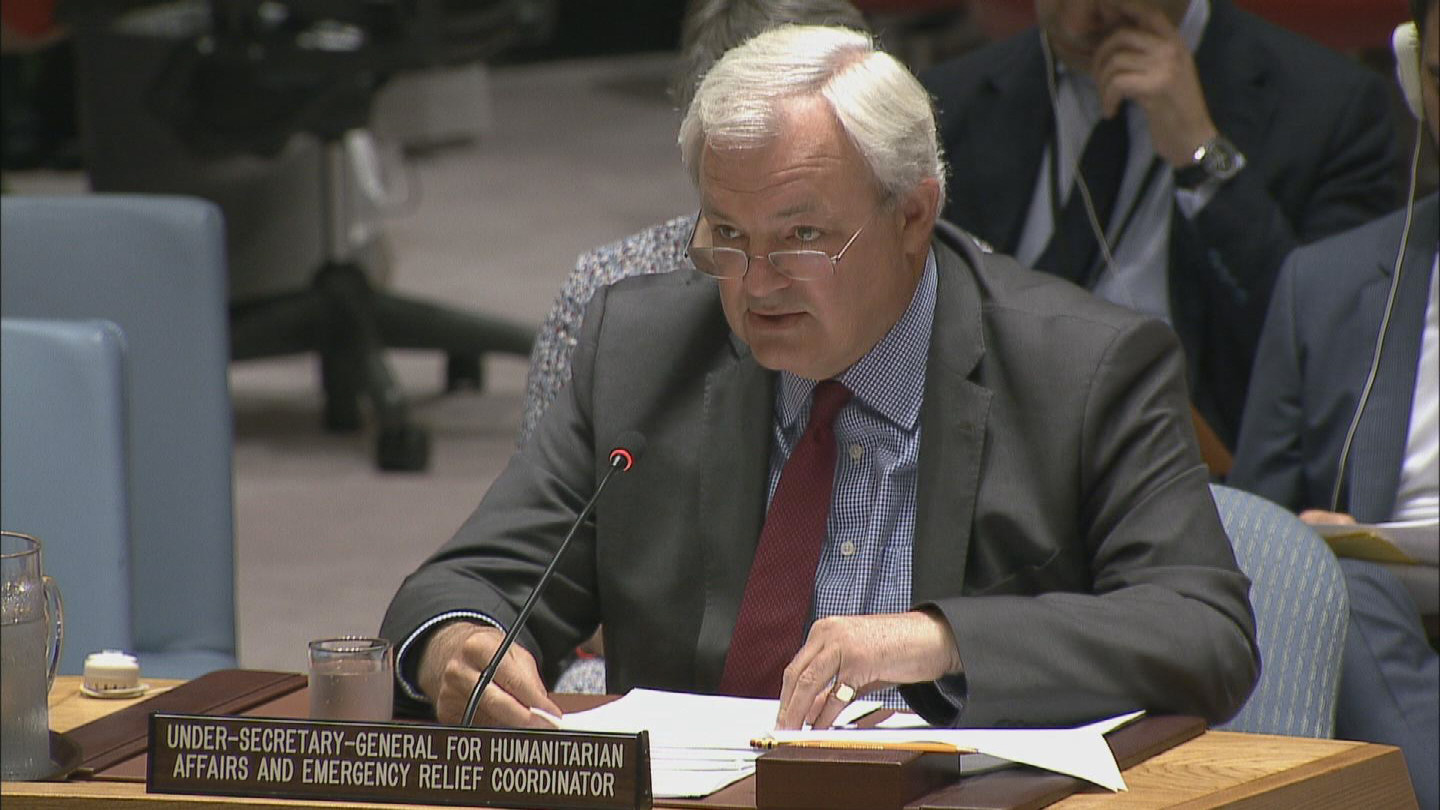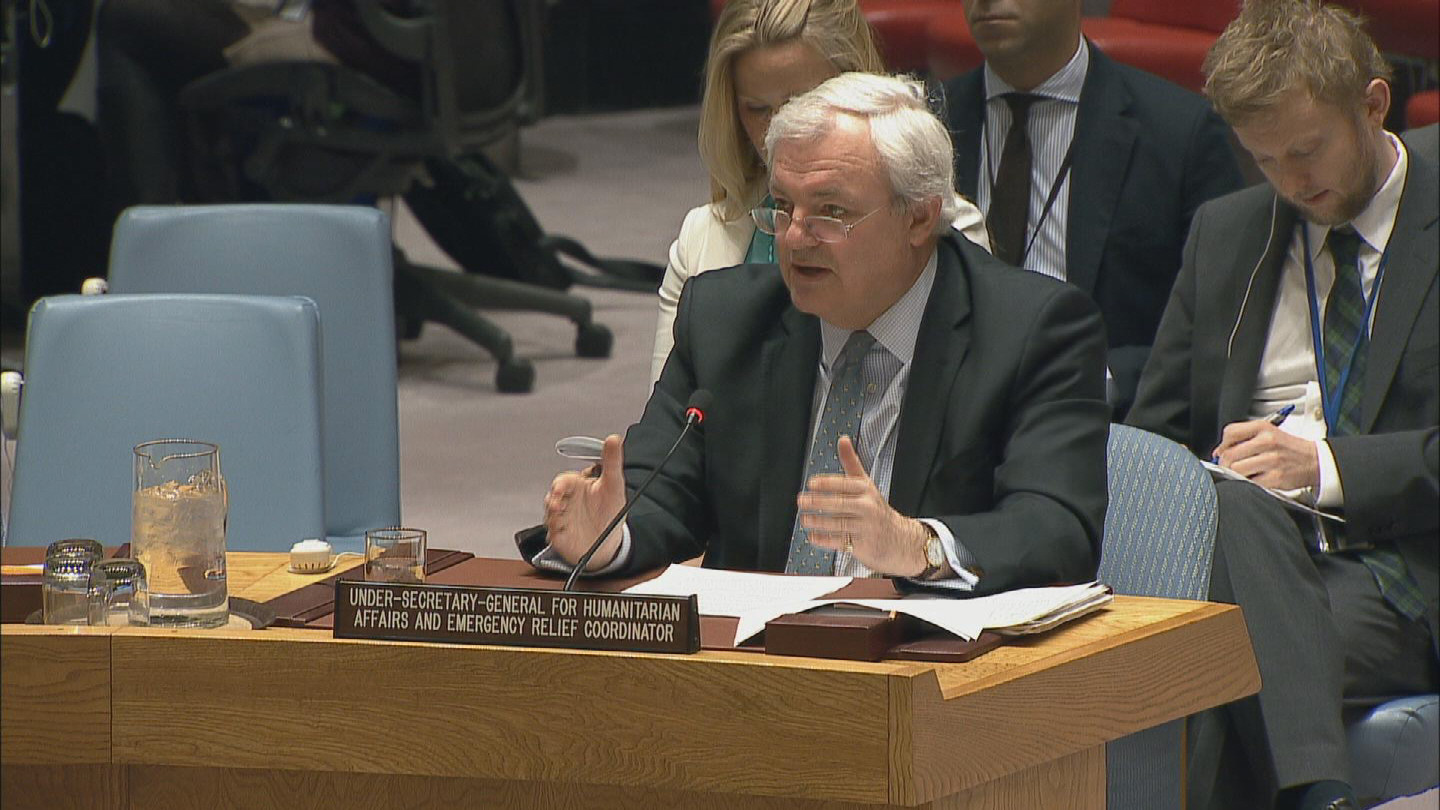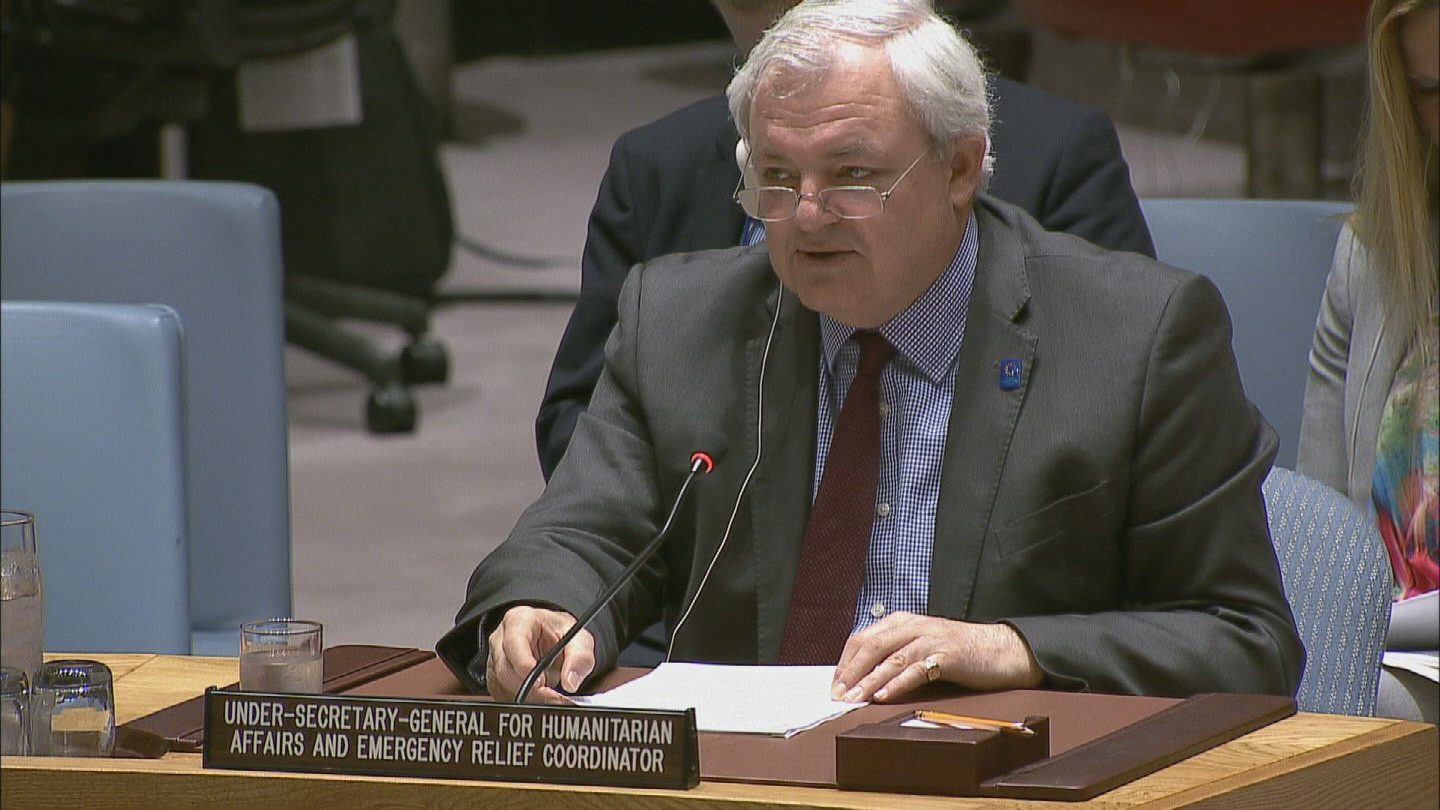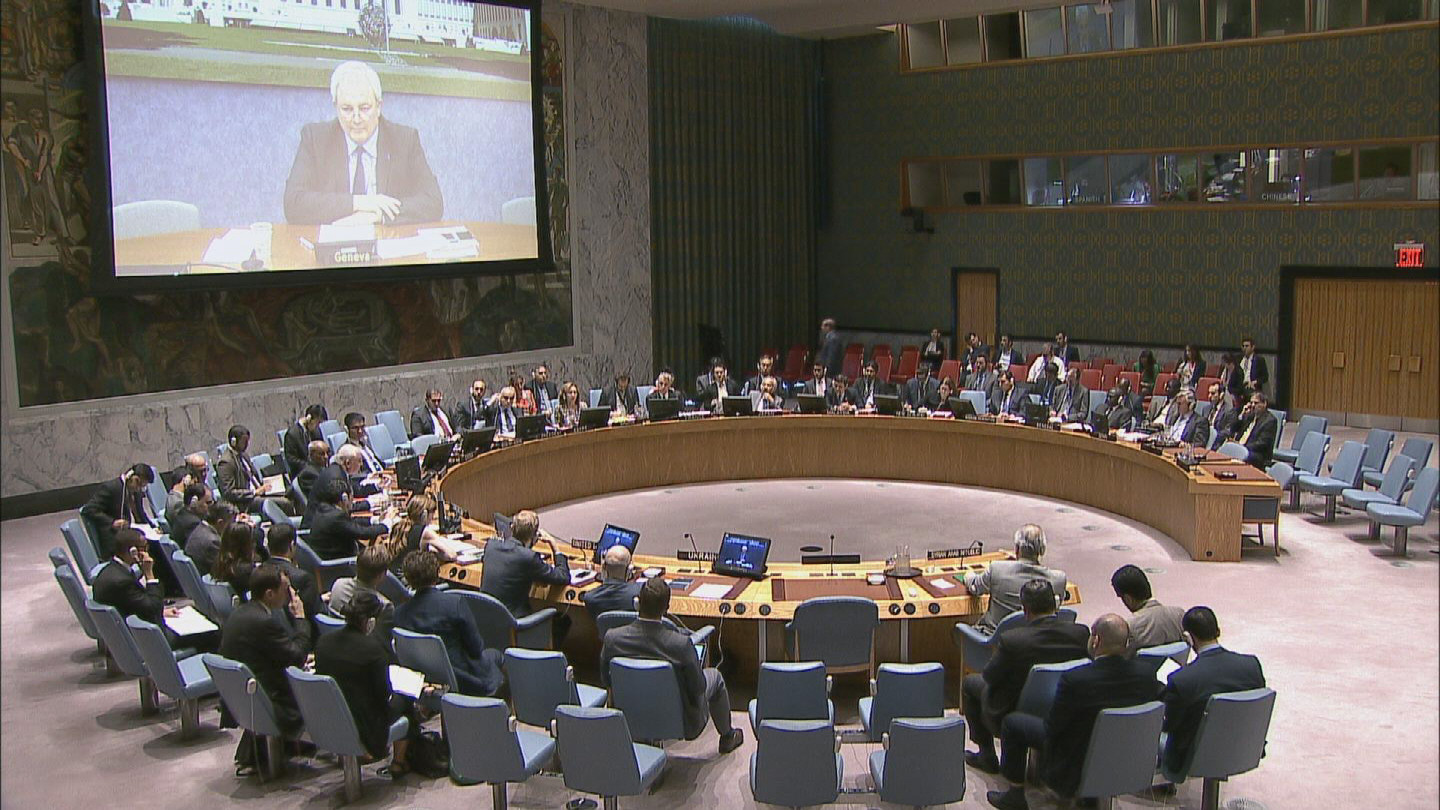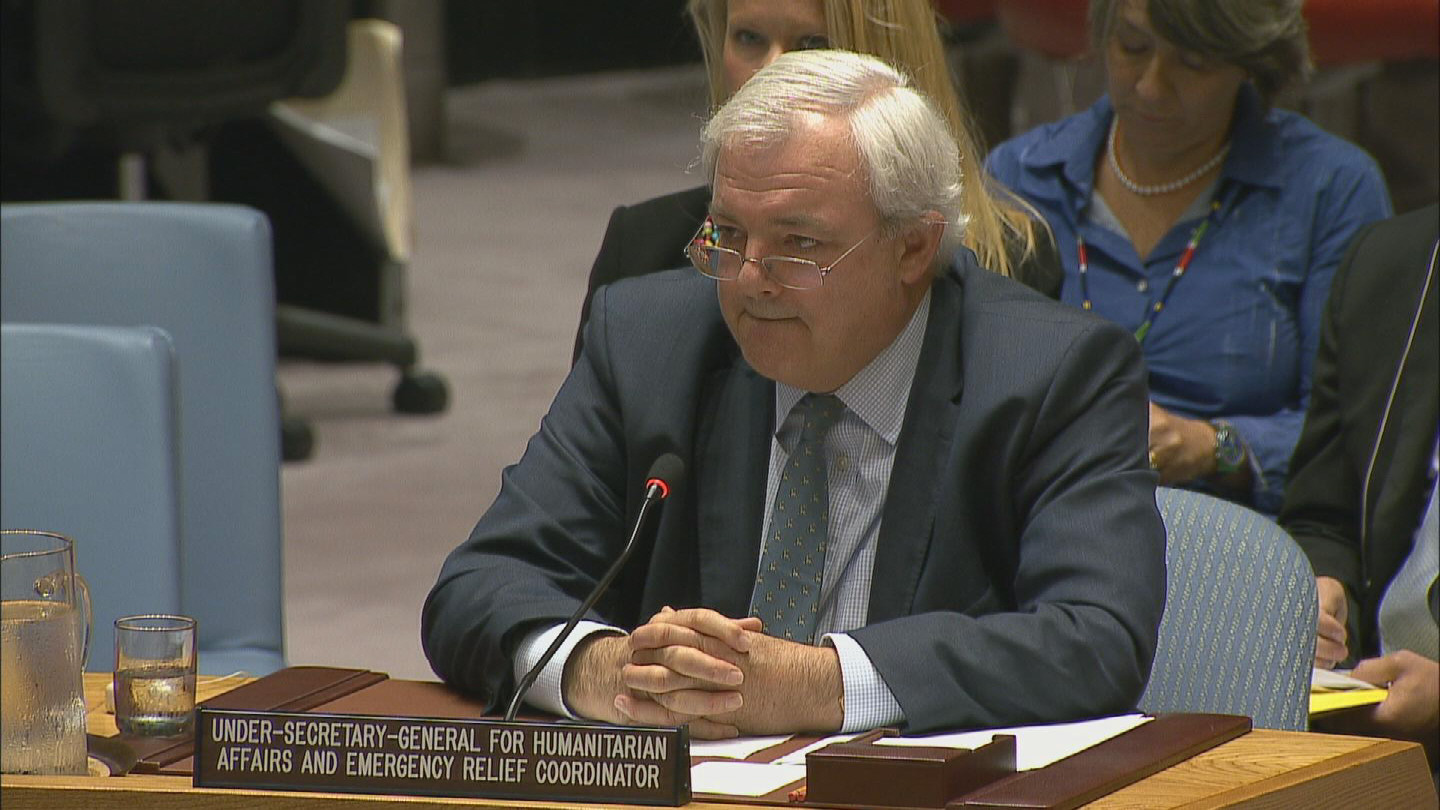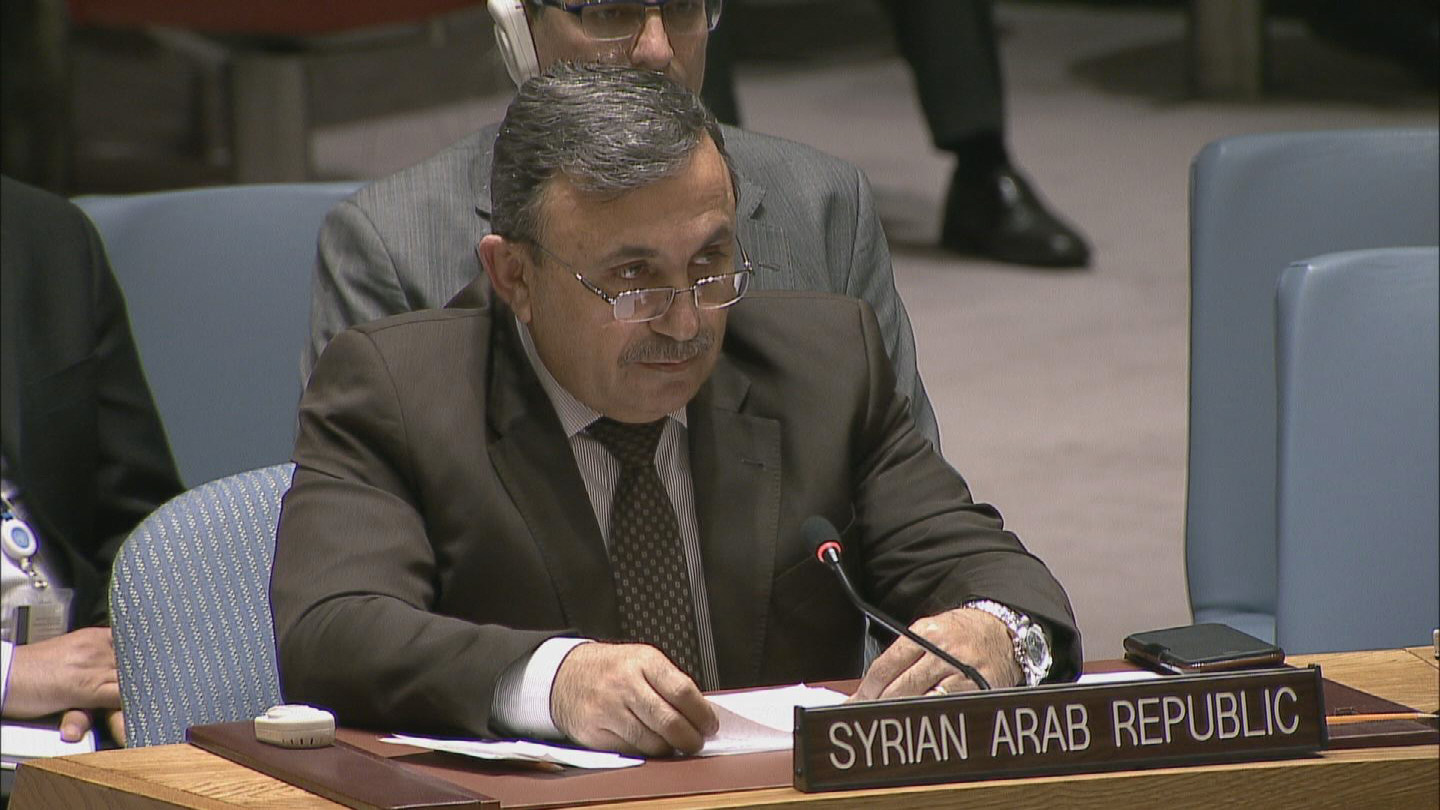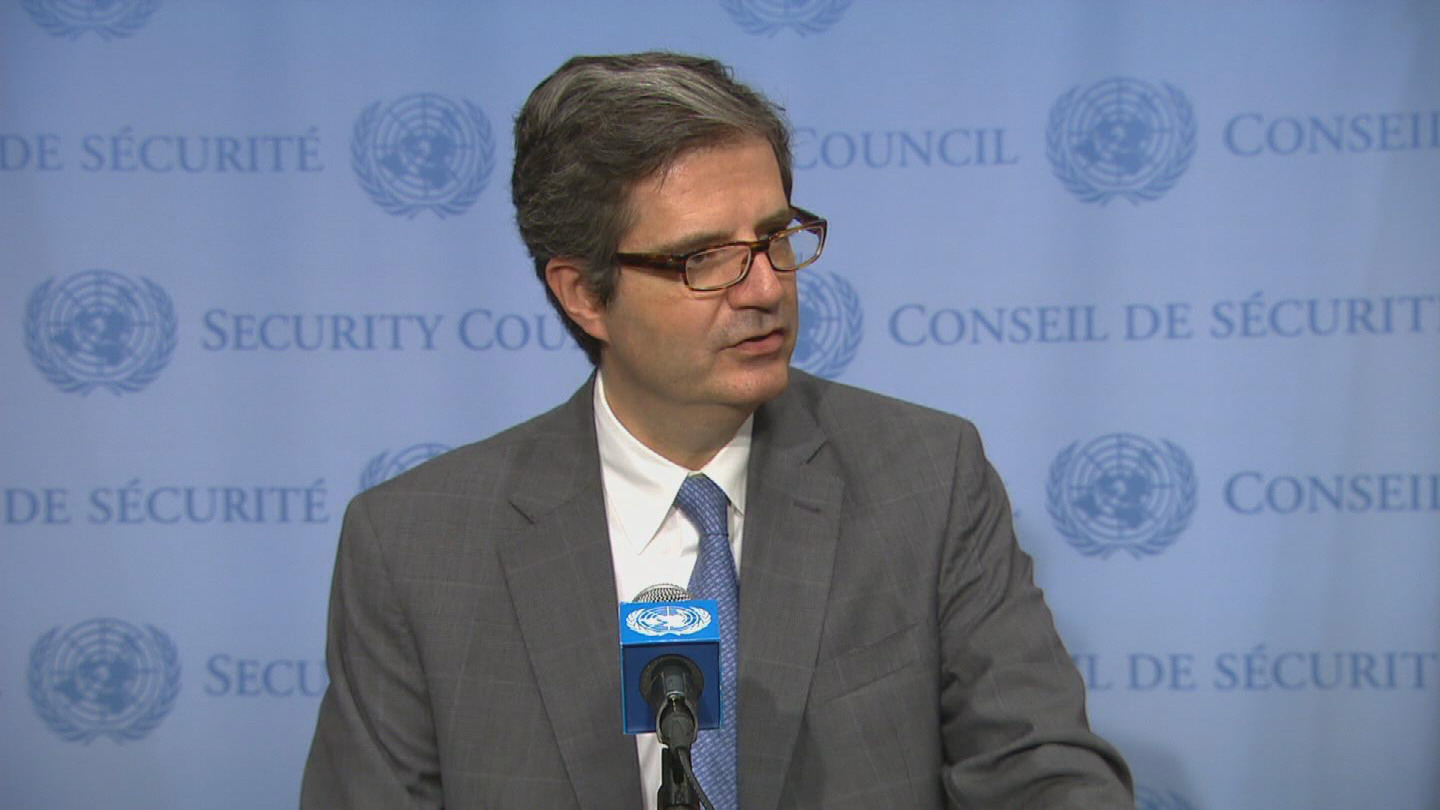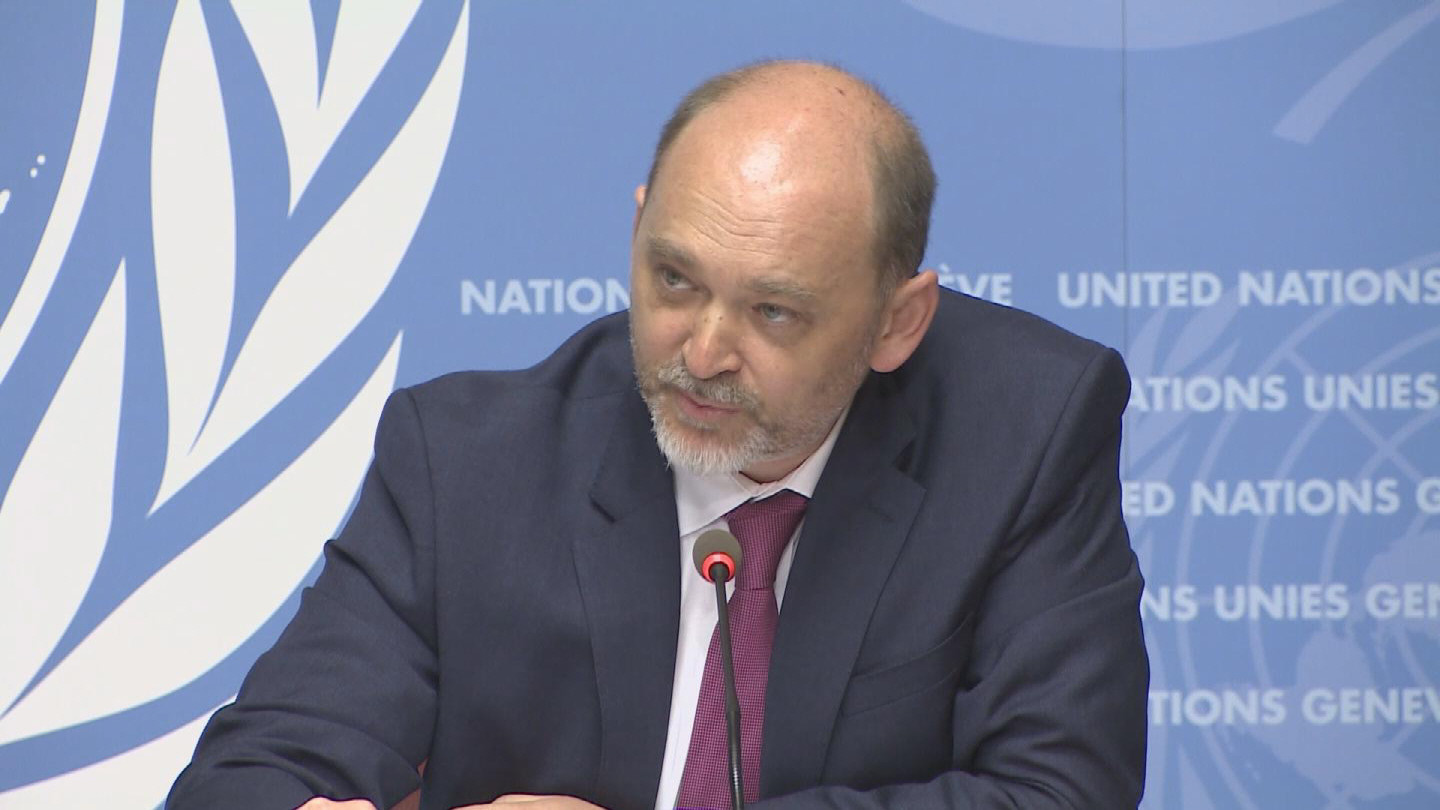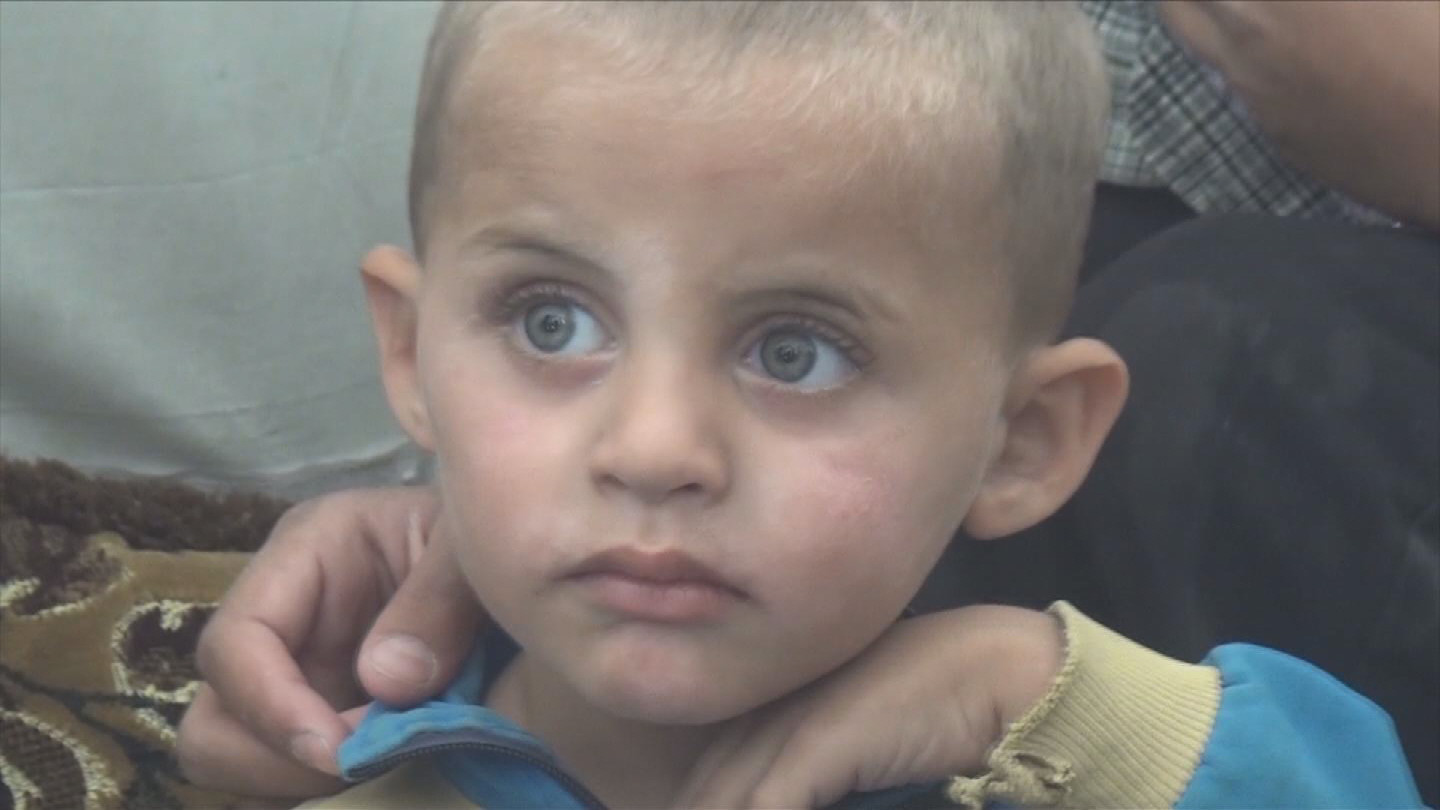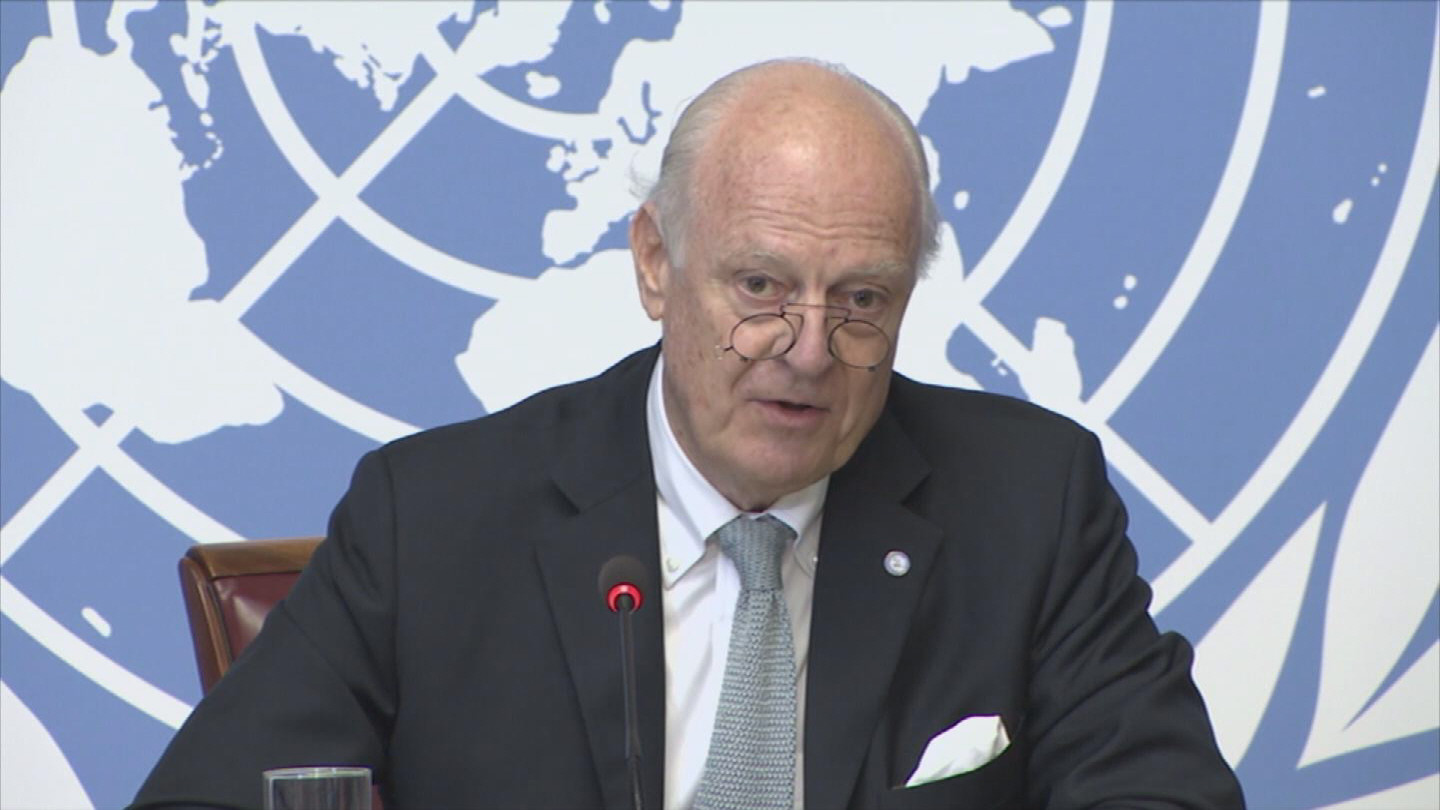UN / SYRIA O’BRIEN
Download
There is no media available to download.
Share
STORY: UN / SYRIA O’BRIEN
TRT: 03:15
SOURCE: UNIFEED
RESTRICTIONS: NONE
LANGUAGE: ENGLISH / RUSSIAN / NATS
DATELINE: 27 APRIL 2017, NEW YORK CITY
FILE - NEW YORK CITY
1. Wide shot, UNHQ exterior
27 APRIL 2017, NEW YORK CITY
2. Wide shot, Security Council
3. SOUNDBITE (English) Stephen O'Brien, Under-Secretary-General for Humanitarian Affairs and Emergency Relief Coordinator, United Nations:
“Out of a deplorable terrorist act arose a testament to the strength of the Syrian spirit- of ordinary civilian Syrians coming together to help others, regardless of their background.”
4. Wide shot, Security Council
5. SOUNDBITE (English) Stephen O'Brien, Under-Secretary-General for Humanitarian Affairs and Emergency Relief Coordinator, United Nations:
“Military might continues to be used against civilians in a way that defies all reason, let alone morality or the law. The use of abhorrent chemical weapons on 4 April in Khan Shaykhun is yet another horrific account of such brutality. I wish I could say mindless brutality; but no, it was deliberate, planned, predetermined, by other humans against their own fellow human beings, sheer unbridled cruelty by leaders and commanders. And we await the investigation to confirm which ones.”
6. Med shot, O’Brien addressing the Council on screen
7. SOUNDBITE (English) Stephen O'Brien, Under-Secretary-General for Humanitarian Affairs and Emergency Relief Coordinator, United Nations:
“Let us not pretend that those who evacuate move to a location of safety. Many of those who displace to Idlib or northern Aleppo continue to live in areas where civilian structures, including hospitals, come under regular aerial bombardment, and their access to basic goods such as food and shelter is limited. These civilians may no longer be besieged, but they have been forced to leave their homes and they continue to suffer.”
8. Wide shot, Security Council
9. SOUNDBITE (Russian) Petr V. Iliichev, First Deputy Permanent Representative of the Russian Federation to the United Nations:
“We have to note that, at times, there is a falsification of facts in humanitarian reports on Syria which provide justification for criticising fighters on armed groups. What happens is that unverified information gets into circulation. Syrian government participation with outside groups, for obvious reasons, is low against the backdrop of the anti-Damascus campaign. All they see is provocation. Why would we want to worsen this type of situation instead of building prospects for cooperation with Damascus?”
10. Wide shot, Security Council
11. SOUNDBITE (English) Nikki Haley, Permanent Representative of the United States to the United Nations:
“Assad will tighten the noose around the necks of his own people until they give in. The Syrian government’s slow strangulation of its people happens so frequently and so similarly that is has almost become textbook.”
12. Med shot, Russian ambassador
13. SOUNDBITE (English) Nikki Haley, Permanent Representative of the United States to the United Nations:
“Many of you said we need to put pressure on the Syrian regime. That is actually not the case. We need to put pressure on Russia because Russia continues to cover for the Syrian regime. Russia continues to allow them to keep humanitarian aid from the people that need it. Russia continues to cover for a leader who uses chemical weapons against his own people. Russia continues to veto and Assad continues to do these things because they know Russia will continue to cover for them. So I will tell you, sitting in this chamber, I appreciate all the comments that you made, but all eyes and all pressure now need to go to Russia.”
14. Zoom out, Security Council
UN humanitarian chief Stephen O'Brien said the “abhorrent chemical weapons” attack on Khan Shaykhun earlier this month was “deliberate, planned, and predetermined” adding he was waiting for an investigation to confirm those responsible.
Briefing the Security Council via teleconference from Geneva today (27 Apr), O’Brien said despite there being no military solution to the conflict, military might continued to be used against civilians “in a way that defies all reason, let alone morality or the law.” He said the car bomb which targeted people being evacuated from the towns of Foah and Kefraya did not just show the depravity of the attackers but also a glimmer of humanity. He said humanitarians from all directions rushed in to save lives including the Syrian Arab Red Crescent workers, first responders, medical NGO staff, some 15 Syrian NGOs along with countless civilians, “bound together to aid survivors as best they could.” He stressed, “Out of a deplorable terrorist act arose a testament to the strength of the Syrian spirit- of ordinary civilian Syrians coming together to help others, regardless of their background.”
O’Brien said the humanitarian situation in Syria was deteriorating as fighting had intensified on numerous fronts over the last month and administrative and other bureaucratic restrictions by all parties were on a rise. He expressed grave concern about the situation in besieged eastern Ghouta, in the suburbs of Damascus adding that UN had been unable to access to some 400,000 people in the area since last October.
The humanitarian chief noted that although the overall number of people besieged in the country, the process of evacuations could not be misconstrued as a positive development. He said, “Many of those who displace to Idlib or northern Aleppo continue to live in areas where civilian structures, including hospitals, come under regular aerial bombardment, and their access to basic goods such as food and shelter is limited.”
Russian ambassador Petr Iliichev said the cessation of hostilities agreement reach at the end of last year was largely holding. He said his government did not share the criticism of the practice of local truces. He said the truces might not be ideal but were a practical instrument to bring normalcy to the situation and save lives as was demonstrated in eastern Aleppo and other towns. The Russian ambassador asserted the need to help Syrians rebuild liberated areas so they can live in a dignified manner and return to their homes.
Iliichev noted that at times “there is a falsification of facts in humanitarian reports on Syria.” He said unverified information gets into circulation in these reports and the Syrian government’s participation with outside groups “is low against the backdrop of the anti-Damascus campaign.” He asked, “Why would we want to worsen this type of situation instead of building prospects for cooperation with Damascus?”
US ambassador Nikki Haley said Syrian President Bashar Al-Assad “will tighten the noose around the necks of his own people until they give in.” She said the Syrian government’s “slow strangulation of its people happens so frequently and so similarly that is has almost become textbook.” Haley explained that government forces and allied militias first surround the area, cut commercial routes, and then deny the entry of humanitarian aid. She said medical supplies being removed from aid convoys were being sold by soldiers and militias supporting the government in the balck market at inflated prices making sieges a profitable business in the country.
Haley stressed that pressure should not be put on the Syrian government rather the Security Council need to “put pressure on Russia because Russia continues to cover for the Syrian regime.” She said Russia continued to allow the Syrian government “to keep humanitarian aid from the people that need it” and “cover for a leader who use chemical weapons against his own people.” She said, “all eyes and all pressure now need to go to Russia.”
Responding to the US ambassador, Iliichev said Russia, Turkey, and Iran were baring their weight to ensure that there was compliance with the cessation of hostilities which he said was the best manner to ensure the improvement of the humanitarian situation in Syria. He said Haley did not mention what her government was doing to improve the situation and asked how her government was putting pressure on the moderate or non-moderate opposition over which it has influence.
